You want to participate in the academic mobility programmes but you are neither familiar with the culture and traditions of the host country nor sure of your language proficiency level? There’s a solution to your problem! Follow the example of the two Austrian students: Ann and Nina who are participants of the Erasmus+ academic mobility programme. They decided to prepare themselves to the classes at Polotsk State University by taking summer Russian language courses at PSU.
Natalia Apanasovich, Alyona Molchanova, Natalia Nester and Illona Antipova, lecturers at the Department of Slavonic Philology, helped the students to become familiar with our country, city and university by combining theory and practice at the Russian language lessons.
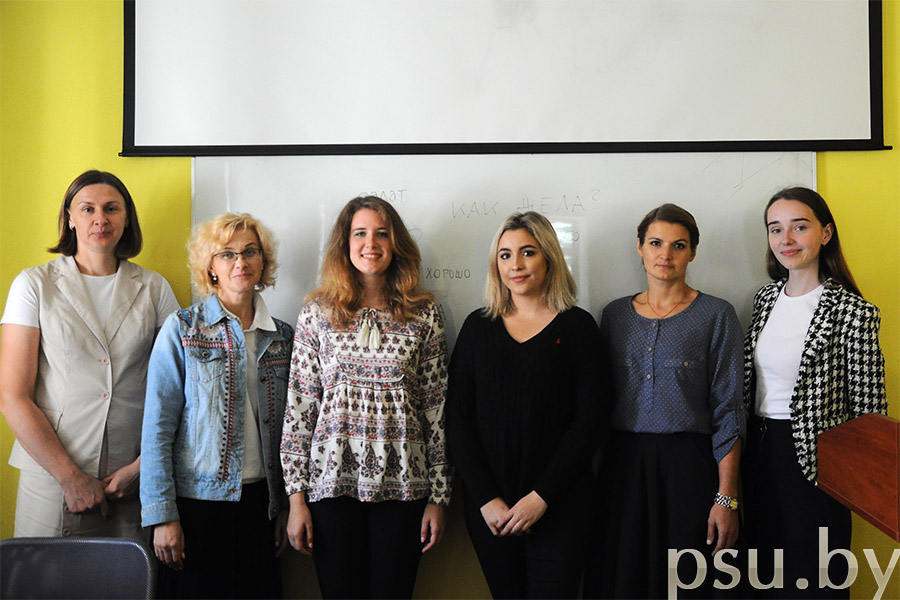
Broaden the Horizons
This educational project was developed for foreign citizens willing to start studying Russian and learn more about today’s Belarusian culture. During 4 weeks, the listeners had a great opportunity to spend their time with pleasure: discover an unexplored Russian language world, make new friends, dig into the peculiarities of the Belarusian culture and taste the Belarusian national cuisine.
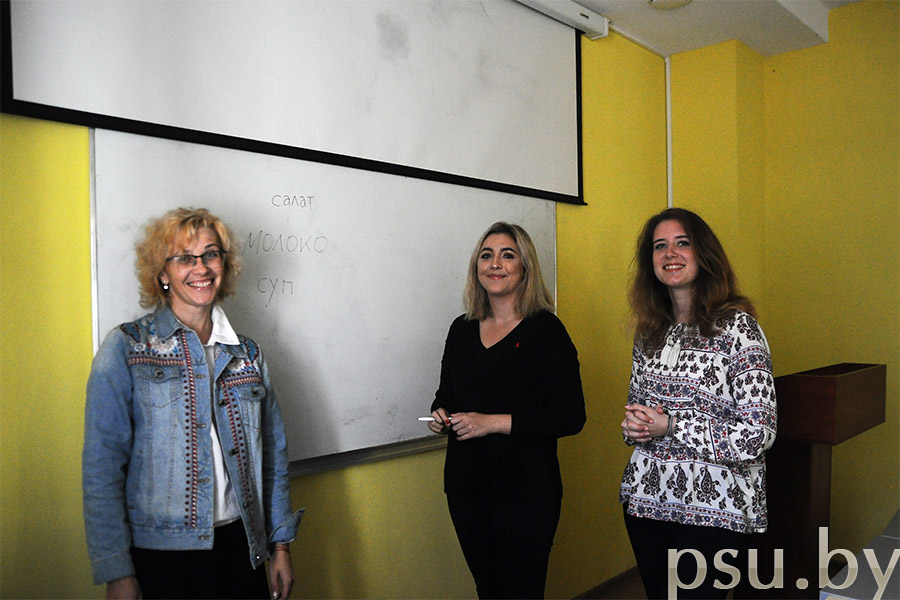
From theory to practice
It is not a secret that the best way of overcoming a language barrier is a live informal conversation. It’s clear that grammar wasn’t the only subject the girls studied. The students went to cafes and shops thus using the language in real life and practicing their vocabulary and grammatical structures.
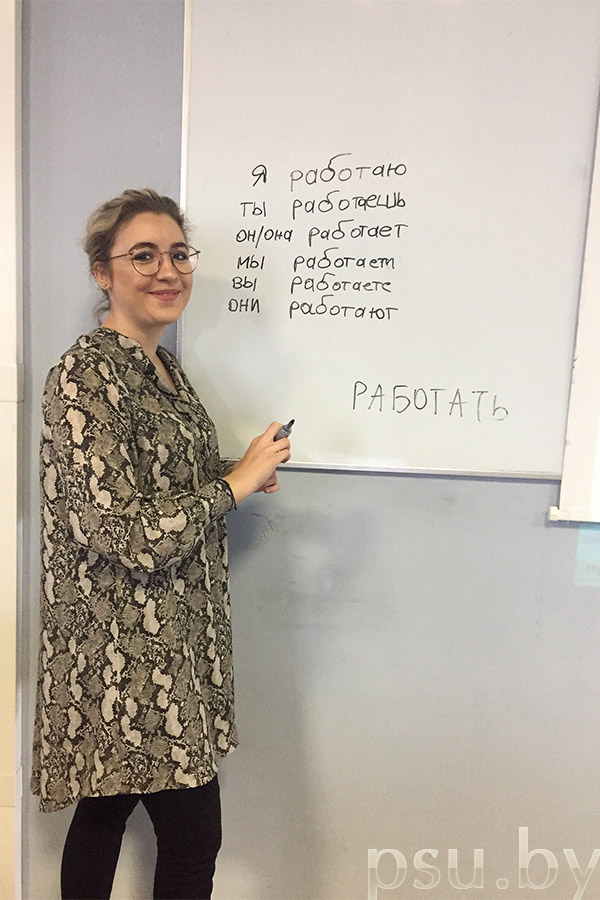
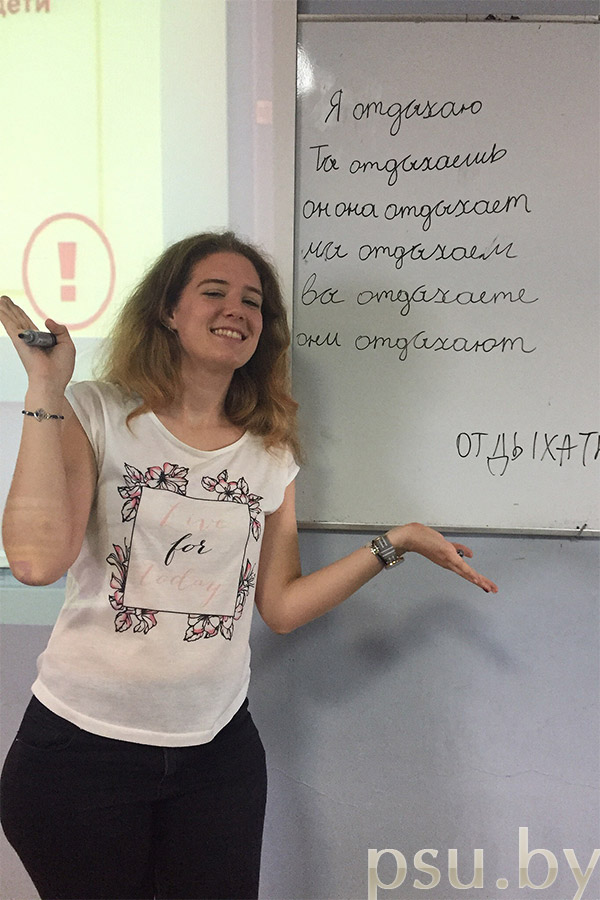
Learning through play
The studies shouldn’t be boring! Various games, crosswords, songs, even dances and gymnastics were included in their studying programme. Modern communicative approaches, warm atmosphere and personal charm of the teachers as well as the students’ high efficiency level and diligence made it possible to cope with all the tasks.
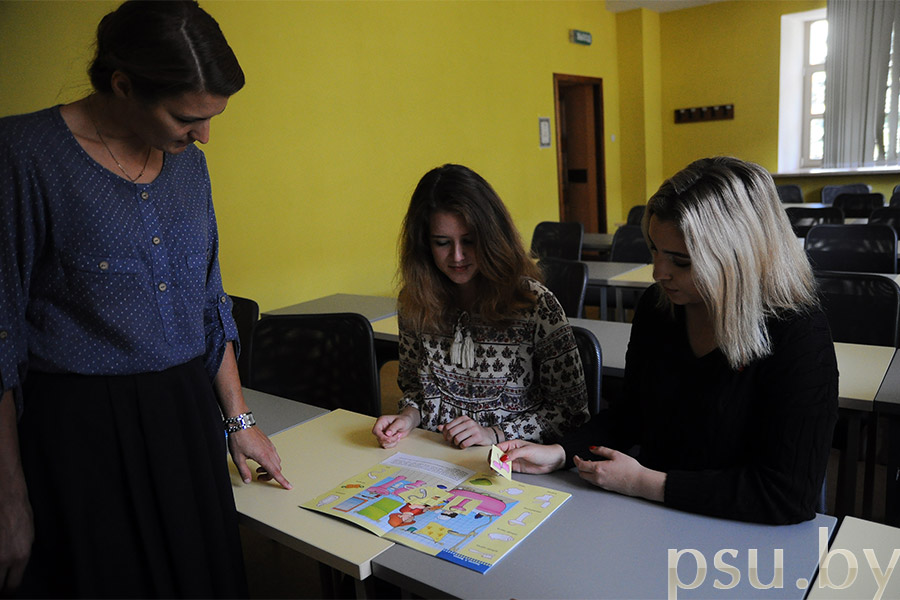
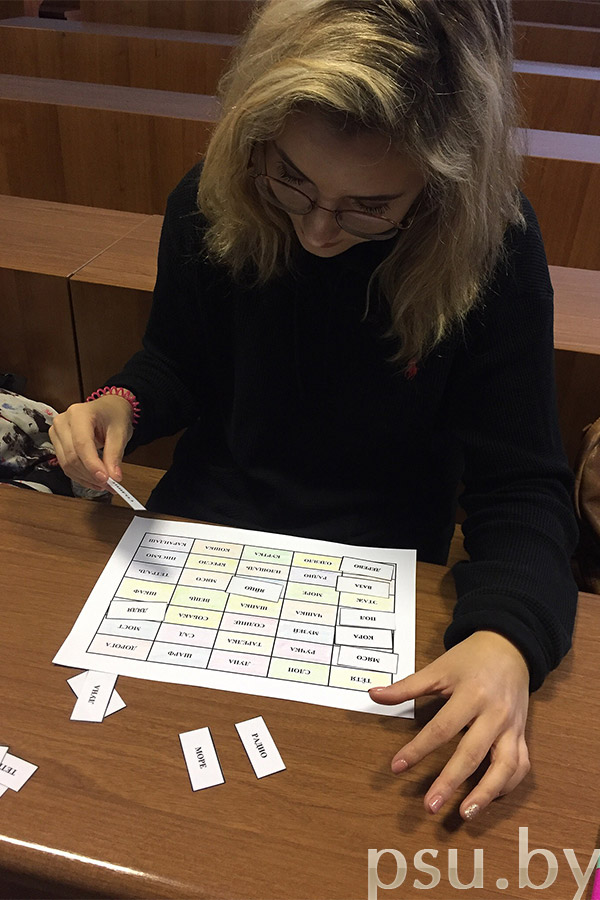
Travel with ease
Besides, Ann and Nina love travelling very much. But how can they dispense with the Russian language while travelling around an unknown country? How can they call a taxi or book their seats on a minibus? These and other questions were discussed during their studies. Our guests visited Vitebsk together with other listeners of the Summer School organized by the Centre for Foreign Languages Study.
The girls longed for the beginning of the academic year for the university to fill with students and the girls’ social network to broaden. The students from the voluntary movement “My Belarusian Guide” kept the Austrian students amused by visiting various events together.
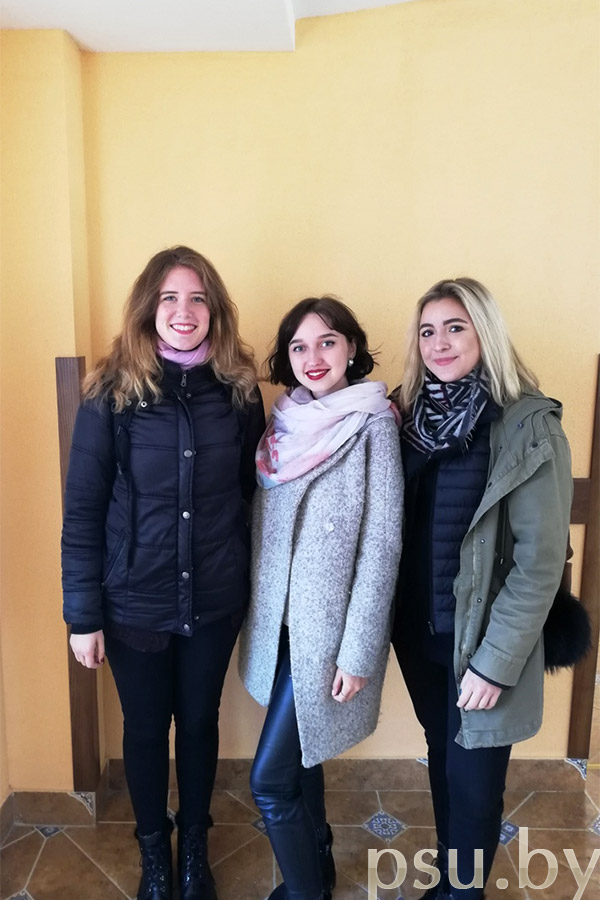
Voluntary movement coordinator Yana Tarasevich interviewed Ann and Nina.
Yana: Tell me a few words about yourselves.
Ann: I’m Ann and I’m 21.
Nina: And I’m Nina, I’m 21 too. We’re from Carinthia, the southernmost Austrian state. We live and study in the state’s capital that borders with Italy and Slovenia. We study at Pädagogischen Hochschule Kärnten and our study programme is “Primary School Education”.
Yana: How did you learn about the education programme in Belarus?
Ann: We have an Erasmus + office where we can learn about educational courses and projects. They told me that there was such opportunity. I always wanted to study Russian and learn more about Belarus. That’s why I decided to participate in the programme. Getting acquainted with new people and culture is exciting. I came to study at the Summer School and learn Russian in August. My studies will last till November. I’m really into studying languages. My first language is German, but I speak English, Italian and Spanish. Besides, we studied French and Latin at the university.
Nina: And I speak German, English and Italian. I learned about the Belarusian study programme via Erasmus + as well. But my studies will last till December. We are interested in the culture of different countries and try to learn more about them.
Yana: What do you like here, in Belarus?
Ann: We like the country itself, and people here are kind and friendly. We communicate a lot every day and volunteers really help us. I also like the national cuisine here. I just adore draniki. The nature here is beautiful; the streets are clean. We learn something new every day here and master our Russian. During the time spent here, we’ve visited Polotsk, Novopolotsk, Vitebsk, Minsk and we’re going to visit Brest soon.
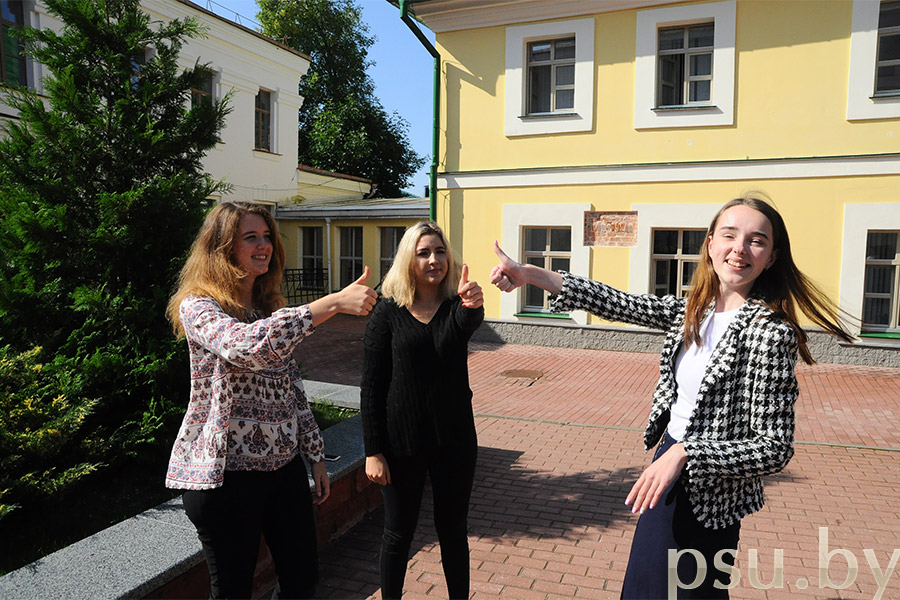
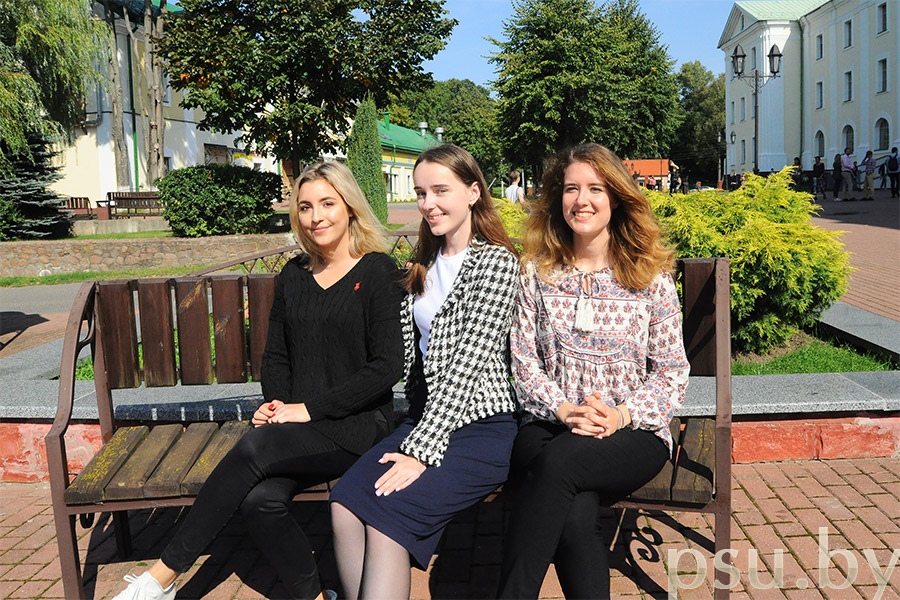
Nina: Life in Belarus differs a lot from the one in my home town, but I feel comfortable here.
Yana: Tell me about your university.
Ann: As we’ve already said, our study programme is “Primary School Education”. I’ve been studying abroad for two semesters already: one in Italy and the other in Chile. This is my 4th and the last year.
Nina: And I have to study for one more year. What concerns Austrian education, primary school teachers should study the subjects taught at schools. Our main direction is inclusiveness in education.
Yana: How do you spend your free time?
Ann: I like singing, dancing, playing the piano, reading and doing yoga. Besides, I adore travelling, hanging out with friends and walking. I also help children with special needs to do their homework.
Nina: I love chatting with friends and studying languages.
Yana: Tell me about the place you came from.
Ann: Austria is a small country with about 8 million inhabitants. Its capital is Vienna. There are lots of mountains and lakes in Carinthia. We study in Klagenfurt, the state’s capital. About 100 000 people live in the city. It is situated not far from the lake Wörthersee.
Yana: What are your plans for the future?
Ann: We are going to graduate from our university and continue to study languages and work as school teachers. Besides, we’d like to travel and take a Master’s degree course.
It should be noted that speech practice for our Austrian guests is focused on the communicative peculiarities of Belarus, Polotsk and Novopolotsk in particular. That is why the courses are not merely studying the language but also a dive in the living environment, a quick adaptation to the life in a foreign country, a possibility to get used to the communication peculiarities, learn how to use public transport, do shopping or what to say at the bank. Thus, during their studies they can focus on studying the subjects and get rid of communicative and everyday difficulties.
Special thanks to the volunteers that spared neither time nor energy to help the incoming international students to have only positive impression of our university, culture and nation!
You are welcome to become our team member!
Alyona Molchanova, senior lecturer at the Department of Slavonic Philology
Yana Tarasevich, 5th-year student specializing in “Romance and Germanic Philology”